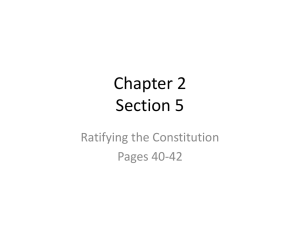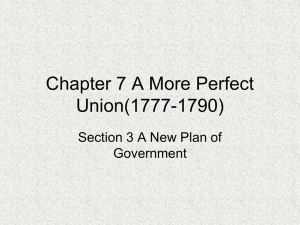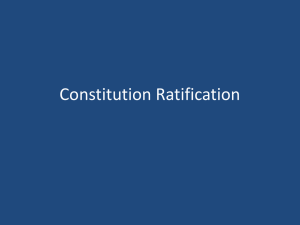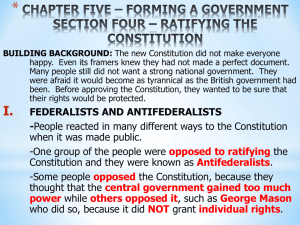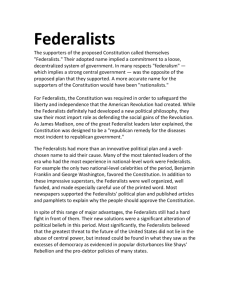Chapter 7 Section 4 Ratification of the Constitution & the Bill of Rights
advertisement
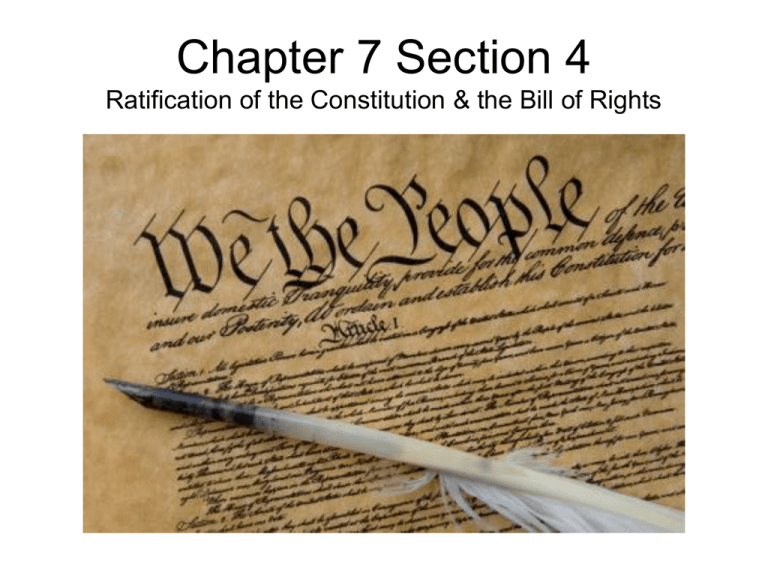
Chapter 7 Section 4 Ratification of the Constitution & the Bill of Rights We need 9 of 13 to agree!!! • The delegates of the Constitutional Convention decided that 9 of the 13 states needed to ratify the constitution in order to make it law. • As the Constitution was released to the public, there were mixed views. Supporters of the Constitution called themselves Federalists because they favored a strong federal, or national government. They called the people who opposed the Constitution Antifederalists. Federalists & Antifederalists I think this new government is too strong! • • I think it’s just right! • Federalists argued that this new government fixed the problems with the articles of confederation. They said that now the federal government had enough power to do what it I think Antifederalists we needed. argued thatneed the government had too much an power, and that the president alarm to keep could easily become a king. out that Antifederalists were also worried Goldilocks! because the new Constitution did not contain a bill of rights. A bill of rights would spell out many of the important rights that citizens wanted to make sure that they had. It took some time and some convincing to get many of the states to ratify the constitution. But, after it was promised that we would add a bill of rights, all 13 states ratified the constitution. People celebrated in the streets. George Washington Becomes President • After it was approved, George Washington was elected our first president, our first congress was elected, and we got down to the business of writing a bill of rights. The Bill of Rights • The Framers of the constitution had established a way to amend, or change the constitution, but is wasn’t easy. If you want to change the constitution, threefourths of the states have to approve the change. Twelve amendments were proposed with the bill of rights. Three-fourths of the states approved ten of those. Those ten amendments became our bill of rights. • With the Bill of Rights in place, the new framework of government was complete. The constitution has endured for more than 200 years because it contains timeless principles, yet can be amended.



